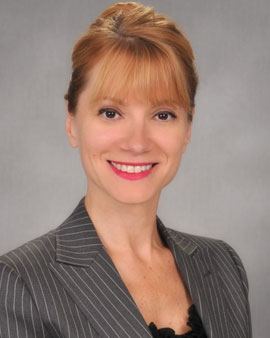
By Elisabeth Van Bockstaele, PhD
Dean, Graduate School of Biomedical Sciences & Professional Studies; Vice Provost of Graduate Education; Professor of Pharmacology & Physiology
When I arrived at Drexel in Fall 2013 as founding dean of the Graduate School of Biomedical Sciences and Professional Studies in the College of Medicine, I had many ideas about how our Graduate School could support graduate students. Of utmost importance was ensuring that graduate students understood the many diverse career paths that exist for graduates with a PhD in a biomedical science discipline. The key was to expose them to these careers early in their scientific training and help them develop a network of professional contacts as they progressed in their academic studies.
Another critical element was to engage the faculty in this important endeavor. I was fortunate to find like-minded faculty who were eager to join the effort and senior graduate students who were willing to contribute their time and talents to developing the programming. Over the past several years, we have hosted several successful professional development events, most recently Building Bridges Between Academia and Industry. We have had significant input from Neuroscience program faculty and students (Dr. Jed Shumsky, Dr. Ramesh Raghupathi, Dr. Paul McGonigle and Ankita Patil, among others) in the development of the programming. Below is a summary of tips from these events:
Be Open-Minded
Speakers at our events worked in diverse scientific careers including medical writing, marketing/sales, medical science liaison, nonprofit administration, government positions, biotech, big pharma, patent law, regulatory affairs, entrepreneurship, medical/clinical operations and clinical research. Common to many of their stories is that their career paths took unexpected twists and turns. Importantly, they were always open to investigating different career opportunities and exploring whether different jobs might be a good fit for them.
Acknowledge the Value of Transferable Skills
PhD training affords students the opportunity to develop a host of important skills away from the bench. Some of these include working in a team setting, writing manuscripts, reviews and grant applications, giving oral presentations, receiving and responding to criticism, working on tight deadlines, mentoring others (such as undergraduate students and junior graduate students), leadership via service on GSA and committees, and coping with failure. These experiences provide foundational support for many different scientific careers.
Be True to Yourself
PhD training is a time to discover what you like and don’t like spending your time on. If you discover that you do not enjoy public speaking, it’s probably not wise to take a job where this is what you will be doing most of the time. Similarly, if you have young children and need to be at home to provide for them, a job with a lot of travel is probably not ideal. Understanding priorities in your life and factoring in work-life balance is key to identifying a career that complements your lifestyle.
Be Prepared to Pivot
Adaptability is another trait that our speakers highlighted for success. In big pharma, it is possible for an entire division of the company to close on short notice. Being adaptable and embracing change is key to successfully navigating these times. Our speakers and panelists valued the multiple positions they held and acknowledged that moving from one job to another enabled them to mature and grow in their professional careers, as opposed to become stifled in one position. Common to all speakers and presenters at these professional development events is that they found their time obtaining their PhD rewarding and highly valuable. This was particularly true when their PhD advisors were supportive mentors. I have found Drexel to be a place that firmly believes in supporting its graduate students. From my arrival, it has been clear that graduate students drive the research enterprise. I have also found a genuine desire to support graduate students in and out of the classroom and, importantly, in guiding their future career paths.
The graduate program in Neuroscience is a leader in this area, with engaged faculty and senior leadership who prioritize student success and wellness. I was delighted to learn of an outreach by a third-year PhD student in Neuroscience, Andrey Borisyuk, who attended the recent conference on bridging academia and industry. Andrey stated: “The event last night was so informative, eye opening, and organized so well that I wanted to thank you and your team for realizing this event. Personally, these types of events should be held yearly for us grad students and especially introduced during orientation to the graduate program.” It was gratifying to learn of the interest of current Neuroscience students in volunteering for future professional development events, as we are always looking to include graduate students in our program development.
Finally, our events have been enriched by our Drexel alumni who have gone on to satisfying and successful diverse biomedical science careers and who return to campus to share their journeys and tips for success. Our speakers, panelists and roundtable participants give willingly of their time to help the next generation of scientific leaders. Our Drexel graduates recognize and value the strong mentoring environment and support they received during their graduate training in the College of Medicine and want to give back.
I look forward to 2020 and continued input from the Drexel Neuroscience community in shaping future professional development events that assist our current graduate students in finding rewarding careers that match their interests and lifestyles.